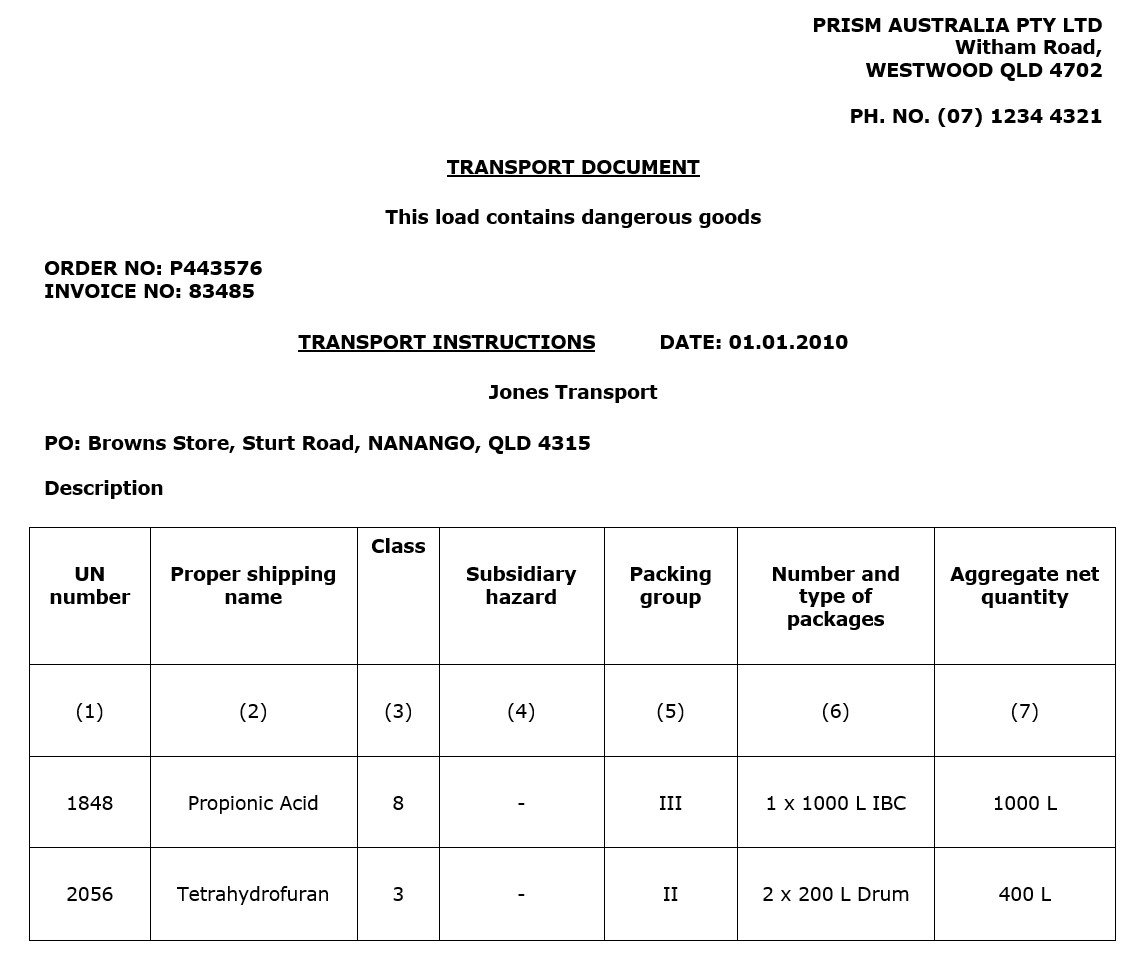Duties of dangerous goods consignors
Consignors are responsible for choosing and hiring a prime contractor to transport dangerous goods by road.
As the consignor, you need to:
- make sure the goods are packed and marked appropriately
- tell the prime contractor the goods are classified as dangerous
- give the driver a completed and accurate dangerous goods transport document.
Dangerous goods transport document
This list provides information for consignors on what they should include in each column (1-7) of a dangerous goods transport document. You can find an example dangerous goods transport document below.
Details that must be included
- The UN number* of the goods
- The proper shipping name of the goods or the name of the goods that appears on the packaging, article or other receptacle in which the goods are contained
- The class or division of the goods
- Each subsidiary hazard of the goods, if any
- The packing group for the goods, if any
- A description of each type of package or other receptacle to be transported - such as drum (DRM) or intermediate bulk container (IBC)
- The number of packages or receptacles of each type to be transported, and the aggregate quantity of the goods
Some dangerous goods of class 5.2 and class 4 have extra notification requirements. Refer to the Australian Dangerous Goods Code for more information.
*The United Nations number (UN number) is a 4-digit numbering system developed by the United Nations Committee of Experts on the Transport of Dangerous Goods for the quick identification of dangerous goods.
Example dangerous goods transport document

Placard requirements
Read about placard loads and driver and vehicle licensing requirements to determine whether a dangerous goods load must be placarded, and if a dangerous goods driver or vehicle licence is required when transporting dangerous goods by road.
Dangerous goods tank design applications
Read the guidelines for dangerous goods tank design applications to see what to include in a dangerous goods tank design application.
Interstate contacts
Contact an interstate competent authority for information on dangerous goods regulations, licensing and classifications outside of Queensland.
Also consider...
- Read about storing and transporting hazardous chemicals.
- Learn more about transporting explosives.